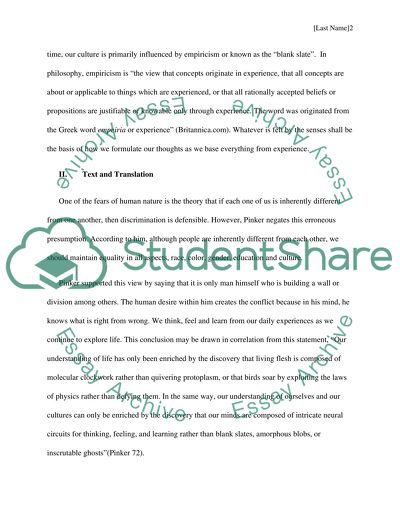Cite this document
(“The Blank Slate Essay Example | Topics and Well Written Essays - 1750 words”, n.d.)
Retrieved from https://studentshare.org/environmental-studies/1411031-the-blank-slate
Retrieved from https://studentshare.org/environmental-studies/1411031-the-blank-slate
(The Blank Slate Essay Example | Topics and Well Written Essays - 1750 Words)
https://studentshare.org/environmental-studies/1411031-the-blank-slate.
https://studentshare.org/environmental-studies/1411031-the-blank-slate.
“The Blank Slate Essay Example | Topics and Well Written Essays - 1750 Words”, n.d. https://studentshare.org/environmental-studies/1411031-the-blank-slate.


